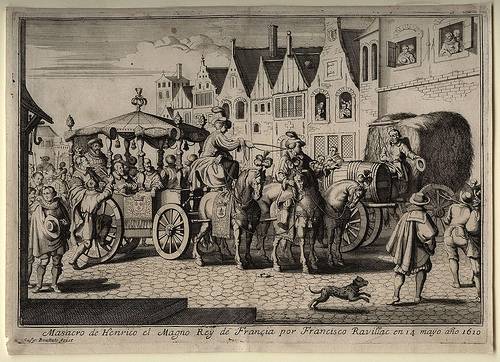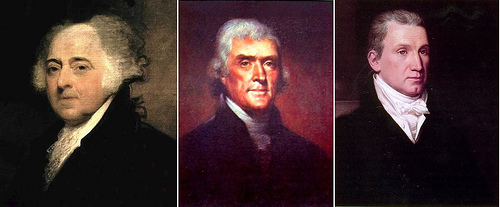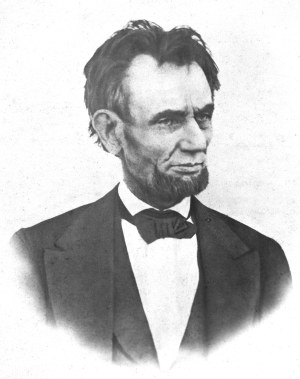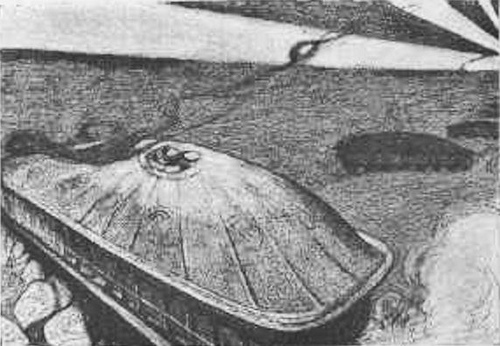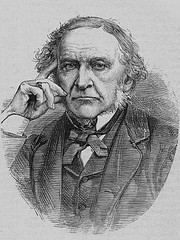
We know when Henry Jenkins died: Dec. 9, 1670. What we don’t know is when he was born. The Bolton laborer claimed to remember driving a cartload of arrows to North Allerton as a boy at the Battle of Flodden Field. That would mean he had been born in 1501 and was 169 years old at his death. Whether that’s true is anyone’s guess, but that’s the age that’s engraved on his tombstone.
If it is true, one author reckons, he certainly led an eventful life:
In his time the Invincible Armada was destroyed; the republic of Holland formed; three queens beheaded, Anne Boleyn, Catharine Howard, and Mary Queen of Scots; a king of Spain seated upon the throne of England; a king of Scotland crowned king of England at Westminster, and his son beheaded before his own palace, his family being proscribed as traitors; and, last of all, the great fire in London, which happened in 1666, toward the close of his wonderful life.
Indeed, to be a dutiful subject of the crown, he’d have had to change his religion eight times:
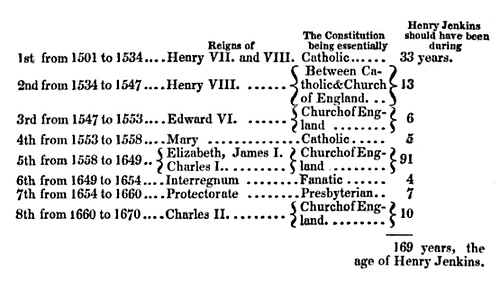
((From The Mirror of Literature, Amusement, and Instruction, Oct. 17, 1829.)
